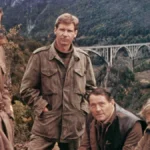ANTICHRIST. Lars von Trier chasing away his demons
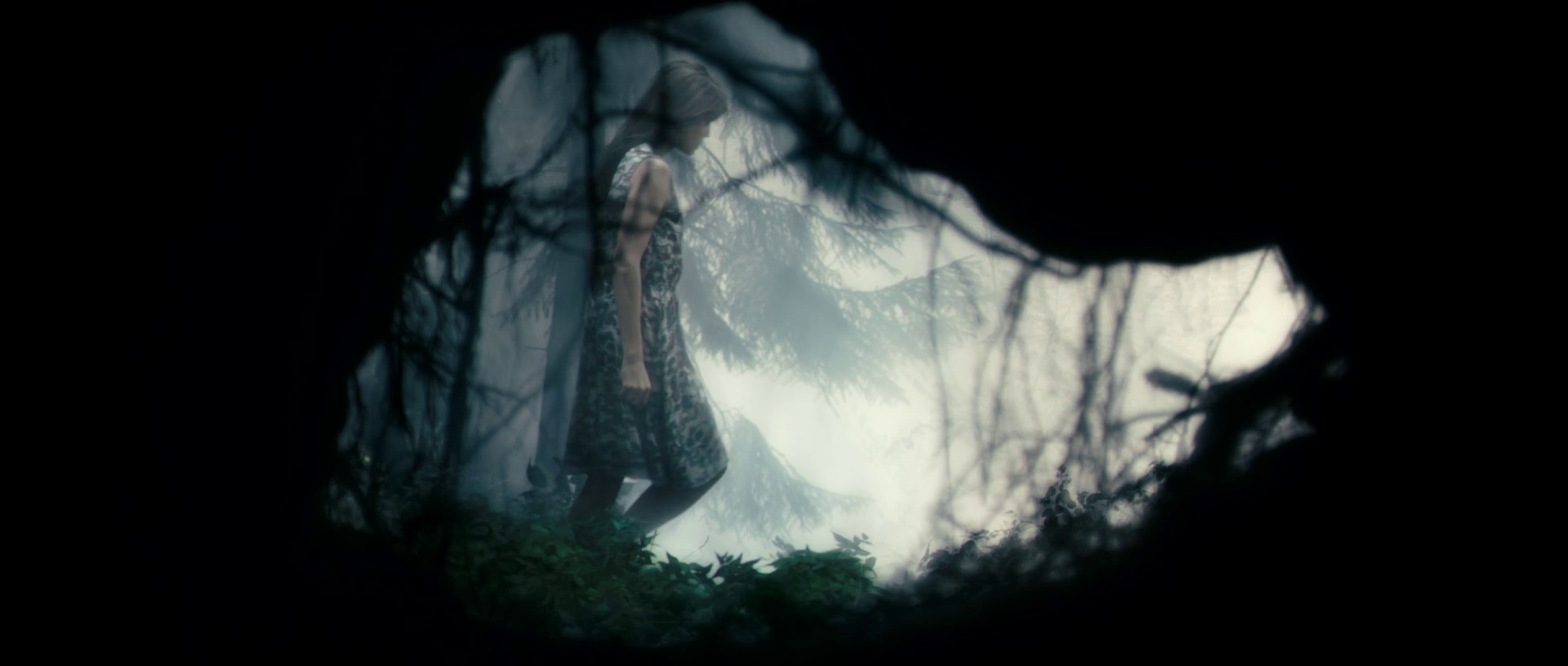
This is not a movie that exists for a message or a warning. Nor is it entertainment intended to simply scare viewers. It is a pouring of strong emotions and thoughts of a rather sick, but also brave mind, onto film. You can feel the pain and despair shown without any compromises.
The Outrage
It is not often that there is an opportunity to attend a film screening where a large part of the audience leaves the room. Some resigned due to the lack of dynamic action from the very beginning, the rest left in the process, outraged by the cruelty shown. Lars von Trier’s Antichrist often crosses the border of good taste and decency, and horror easily turns into grotesque. The reactions of the viewers who stayed until the end said it all: nervous laughter seeking the approval of the participants and loud comments on the one hand, and on the other completely absorbing the image in silence. In some particularly intense scenes, you could almost physically feel people twisting and writhing in their chairs, fighting the urge to look away. After the screening, various comments could be heard about wasted money on the ticket, questioning the quality and even the very fact of the film’s purposefulness, or more enthusiastic opinions such as “even better than Hostel!”.
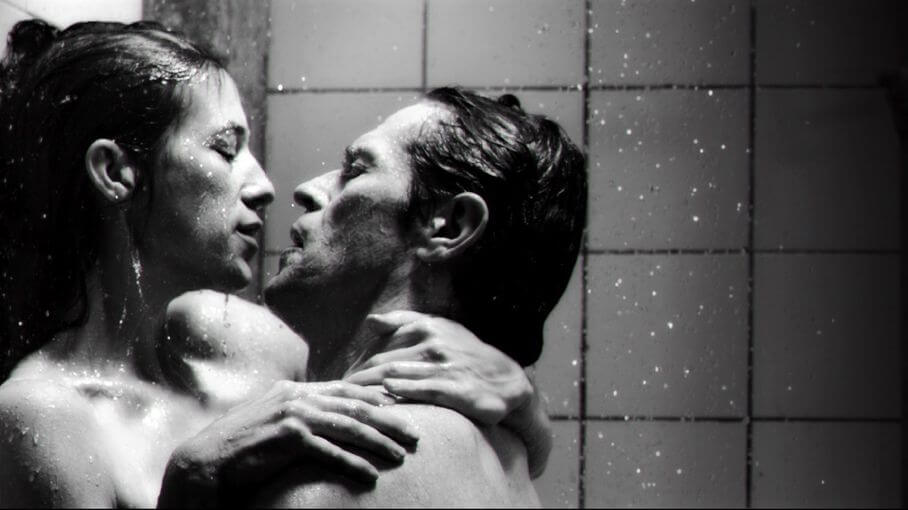
Related:
Survival experience
Lars von Trier once again made a film in defiance, at the same time provoking and smashing the expectations of viewers – mainly those who had not come across his work before. The image evokes opposing emotions, making it difficult to tell whether we watched a “good” or “bad” movie. The category of “liking” is not even worth mentioning. I guess the only way to do some justice is to evaluate it as “survival”, “experience”. And in that sense, it was without a doubt really strong.
The plot is uncomplicated – a married couple loses a small child in a domestic accident and after some time leaves for a cottage deep in the woods, where the therapist husband will try to overcome his wife’s fears to help her cope with grief. The initial intensity of therapy on a psychological and emotional level is then relieved by equally traumatic physical violence. In addition, the whole story is marked by religious symbolism and hints as to the identity of the titular “Antichrist”. The director left many areas for the inquisitive viewer to explore – Gnosticism, the antithesis of the book of Genesis, madness, nature as the kingdom of Satan – you can choose at will. The psychological level mixes and interpenetrates with the symbolic-religious one, building many meanings for individual reading. However, the multitude of detailed interpretations is somehow overwritten by a rather unambiguous, desperate message – it is chaos and evil that definitely triumph, there is no room for hope and salvation.
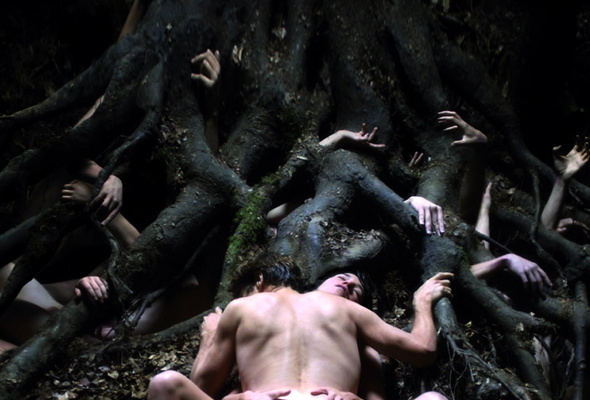
The visuals
Antichrist’s visual setting is his strongest asset and simply takes your breath away. If we reject the allegorical meanings and do not focus solely on the atrocities, all that remains is to admire the supernaturally disturbing atmosphere and at the same time the peculiar beauty of the photos by Anthony Dod Mantle. The camera operates in two modes – the first one is slow motion, which co-creates something like moving paintings, giving the impression of “density” and “depth”. The second is handheld shooting, with lots of close-ups, characteristic of Dane’s previous films. Both treatments do not clash with each other, rather they complement each other and allow you to smoothly control the intensity of the sound, slowing down, stopping, only to accelerate chaotically in a moment. The sound layer also plays a big role – the music appears only in the prologue and epilogue; most of the time we listen to the sounds of the forest, acorns hitting the roof or typical motifs that introduce indefinite anxiety.

The challenge
This film is a big challenge for the audience, but it must have been an even greater burden for the actors: Willem Dafoe and Charlotte Gainsbourg. This level of exposure, physical and mental, requires great dedication and courage – the genre of pornographic horror that von Trier gave the film speaks for itself. The acting skills are at the highest level, despite some exaggeration and grotesqueness.
The creator emphasized in interviews that the Antichrist is very personal to him. Working on it was an act of self-therapy that he shared with the crew and the actors. As this type of work, it can be quite difficult to perceive, because it is not easy to make your own vivisection of fears and obsessions attractive to others. However, despite the inaccessibility, this tension and desperation can be felt almost pouring out of the screen.
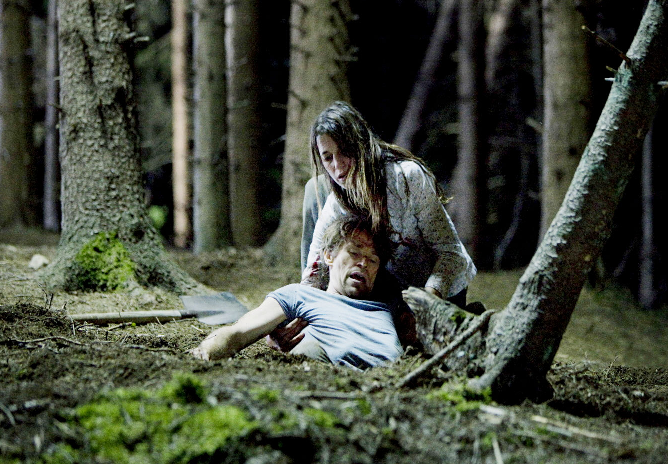
How to rate this movie? No scale is able to convey the impressions from the screening, which would probably be different if you watched the film at home. It is difficult to define it as a closed work in itself. It is rather an experience that provokes and is open to feedback in the form of extreme experiences, including complete rejection and negation. This is not a movie that exists for a message or a warning. Nor is it entertainment intended to simply scare viewers. It is a pouring of strong emotions and thoughts of a rather sick, but also brave mind onto film. You can feel the pain and despair shown without any compromises. There is also a certain expression of views on religion and culture that is not moderate. It is not a perfect horror, nor is it as good as the best films of the Dane. Some may buy religious connotations, others will find it empty and showy. For me, it has always been fascinating to see what is hidden in the recesses of this director’s mind. No matter how indignant you may be – courage and uncompromisingness are always a value, even if they do not bring brilliant works.

As the festival in Cannes has already shown – Trier will probably be happy with any reactions, as long as they are not conservative. Too much approval would be a proof of artistic burnout for him. And that’s how he can brazenly call himself “the best director in the world”.


